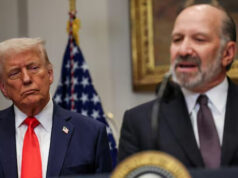External Affairs Minister S. Jaishankar held a conversation with Acting Afghan Foreign Minister Mawlawi Amir Khan Muttaqi on May 15—marking the first public ministerial-level outreach since the Taliban took power in Kabul in August 2021.
Though India has not formally recognised the Taliban regime, the optics and timing of this interaction are far from incidental. The outreach follows the Taliban’s unexpected condemnation of the April 22 terrorist attack in Pahalgam, Kashmir, that killed 26 civilians— an unusual move by a regime long linked, at least historically, with militant groups operating in the region.
The phone call, confirmed by Jaishankar on social media, acknowledged Kabul’s condemnation of the attack and its dismissal of reports attempting to sow discord between the two countries. The message was clear: New Delhi is willing to engage with the Taliban—on its own terms.
This quiet yet significant shift marks more than a diplomatic gesture—it is a recalibrated strategic posture. For the first time, India is openly bypassing Pakistan to establish a direct line to Kabul’s power centre.
“Afghanistan is an important neighbour and historic civilisational partner,” said former Ambassador Anil Trigunayat. “It is good that the level of interaction with the current regime has been elevated.”
India’s approach, anchored in realism, positions it among a growing list of countries—including Russia, China, and key Gulf states—engaging the Taliban for practical and strategic reasons. While official recognition remains off the table for now, the message to Islamabad is unmistakable: New Delhi no longer sees Afghanistan through a Pakistan-centric lens.
At the heart of this evolving alignment is Iran’s Chabahar Port. With land access to Afghanistan via Pakistan blocked for years, Chabahar has become India’s logistical and geopolitical bridge to Central Asia. The port now functions as a critical access point for Indian humanitarian aid and commercial engagement with Afghanistan—bypassing Pakistan entirely.
“Through Chabahar and tactical diplomacy, New Delhi is establishing a direct channel to the Taliban,” said defence analyst Lt Col Manoj K Channan (Retd). “It undermines Pakistan’s long-held claim to strategic depth in Kabul.”
For decades, Pakistan treated Afghanistan as its backyard—a source of “strategic depth” and a buffer against India. That calculus is now under strain. Relations between the Taliban and Islamabad have deteriorated in recent months, exacerbated by escalating Tehrik-i-Taliban Pakistan (TTP) attacks and cross-border tensions along the Durand Line.
“The Taliban no longer dances to Islamabad’s tune,” said Channan. “The rift is real, and India is capitalising on it with measured diplomacy.”
In fact, the Taliban’s outreach to New Delhi—condemning terrorist attacks in India and requesting visa support for Afghan patients—signals a broader diplomatic pivot away from Pakistan’s sphere of influence.
India’s outreach to the Taliban has been gradual but deliberate. Over the past year:
- Foreign Secretary Vikram Misri met Muttaqi in Dubai in January.
- Senior Indian diplomat JP Singh met Muttaqi in March 2024, and later with Acting Defence Minister Mohammad Yaqub Mujahid.
- Indian envoy Anand Prakash followed up with another meeting with Muttaqi in April.
- Indian authorities have allowed limited operations by Taliban-run Afghan consulates in New Delhi, Mumbai, and Hyderabad.
These developments point to a deepening functional engagement, even in the absence of formal recognition. “The Taliban is now a reality. And in geopolitics, pragmatism often trumps ideology,” said Trigunayat.
India’s interest in Afghanistan goes beyond diplomacy. The country holds significant untapped mineral wealth, including rare earths—resources India increasingly needs to diversify away from China.
“The Taliban will likely play all sides,” cautioned Channan. “India must be both competitive and strategic if it wants long-term leverage.”
For the Taliban, facing a legitimacy deficit and economic isolation, engagement with India offers an opportunity to court investment and diversify diplomatic ties.
India’s diplomatic shift also comes against the backdrop of Operation Sindoor— India’s response to the slaughter of 26 tourists in Pahalgam by Pakistani terrorists on April 22.
Some analysts believe the Taliban’s prompt condemnation of the Pahalgam attack signals Kabul’s subtle recalibration in response to evolving regional dynamics and growing disillusionment with Pakistan’s double game on terrorism.
India’s engagement with the Taliban is more than a tactical adjustment—it’s a long-term strategic bet. By reaching out to Kabul while keeping Islamabad at arm’s length, New Delhi is signalling a new axis of influence in South Asia: one based on interests, not ideology.





